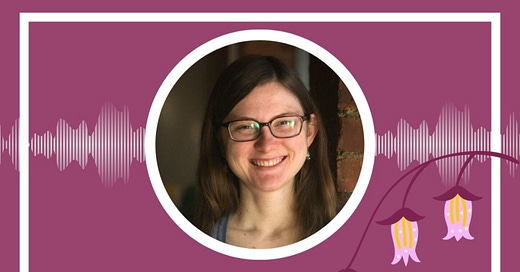But not that kind of western romance…
Pop quiz: Which of the following reasons is a good reason to get married to someone?
Because your family or social circle wants you to
Because you sexually desire that person (or are already sexually involved)
Because you want children (or have them already)
Because you need financial stability
Because you’re “in love” with that person
Because you’re “in love” with someone else
Some of these answers might seem ridiculous, but a hundred or a thousand years ago, people concluded very different things about marriage and romance, depending on the age they live in.
We in the West can bundle together a lot of expectations for romantic partners—they should be your best friend, have romantic attraction, maybe build a family together, share finances, support you emotionally, and on and on. Sometimes we separate out just one or two items—attraction, best-friendship—and focus on that alone. But it hasn’t always been this way. In the scale of human history, our current assumptions about romance and marriage are actually quite young.
In part 2 of this series, we continue our conversation with friend and scholar Kathryn Mogk Wagner, to look through the lens of Western literature at changing perspectives on romance, (Christian) marriage, love, and intimacy through the ages.
This episode is part 2 of 3. For anyone who has had to work through their expectations for romantic relationships (or other people’s expectations for your relationships!), this episode is for you.
__________
Timestamps
0:00 - Eros
1:45 - The biology of attraction
8:05 - The ancient world: Marriage as economic arrangement
10:35 - The early Christian church: equality in adultery
12:15 - Courtly love and longing in the 11th century
20:05 - Example: King Arthur, Lancelot, and Guinevere
23:30 - Arranged marriages and consent in the Christian church
30:05- Example: Dante and Beatrice
39:30 - Contemporary Christian emphasis on marriage—does it deserve it?
45:05 - Companionate marriage: Edmund Spenser’s poetry
49:00 - Holiness as celibacy (Catholics) or married life (Protestants)
53:45 - Song of Songs in the church’s imagination
58:05 - The development of the “pure relationship”
__________
Links and References
Kathryn Mogk Wagner: kathryn.mogkwagner.net
The Allegory of Love by C.S. Lewis
The Symposium by Plato (wiki)
The Divine Comedy and La Vita Nuova by Dante Alighieri; about Beatrice (wiki)
The story of King Arthur, Guinevere, and Lancelot is told many places; one is Le Morte d’Arthur (wiki)
Edmund Spenser, poet (wiki)
Anthony Giddens on the “pure relationship”
__________
Share feedback or questions! Email us at communionandshalom@gmail.com, or leave a comment on Substack.
Find us on Instagram: @communionandshalom
If you like this podcast, please consider supporting us on Patreon: patreon.com/communionandshalom













Share this post